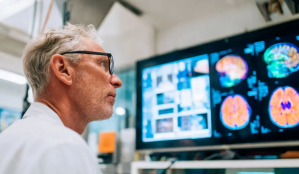Founded in 2011, the nonprofit GiveDirectly has experienced massive success in helping the poorest in Kenya and Uganda by using the simplest approach possible—wiring them money directly. In East Africa, it’s not uncommon for even the poorest people to have a cellphone. This makes it easy for GiveDirectly to transfer large sums of money to them via mobile banking accounts. The average transfer is around $1,000—a significant amount, given that most of the program’s participants live on around 65 cents a day.
Direct transfers eliminate burdensome overhead and bureaucracy on the giving side and drastically lower the chances of corruption on the side of the recipient. According to GiveDirectly’s president and co-founder, Paul Niehaus, “What we’ve said is we’re going to measure how efficient we are by measuring what fraction of every dollar that you give us we put into the hands of a recipient in Africa. And, right now, we’re running around 91 cents.”
Research shows that direct transfers are the most effective way to eradicate poverty by creating long-term income growth. As a result of lifestyle improvements that stem from the cash transfer, participants’ income increases by an average of 34 percent. “There’s a stronger, more rigorous science base in favor of cash transfers than just about any other tool we have in the development toolbox,” Niehaus says.
Instead of using a nonprofit organization to make decisions for the impoverished, giving directly to those in need does a better job at lifting people out of poverty. “Part of the story is that, on average, people are doing good things and their lives are getting better,” Niehaus says. “But the other part of the story is that you know there really is no ‘on average.’ Everybody’s very different. No one person has the same goal or aspiration. What you get when you give people money and let them use it is this real rich human experience where everyone does something a bit different.”
GiveDirectly locates poor people they believe could best benefit from the program and sends them around $1,000 with no stipulations on how to spend it. Research shows that very few participants abuse the program by wasting their money on cigarettes, alcohol, or gambling. The World Bank reviewed 19 studies of cash transfer programs and said, “Almost without exception, studies find either no significant impact or a significant negative impact of transfers on expenditures on alcohol and tobacco,” the report stated. “This result is consistent across the world.”
Most participants spend their money in ways that will benefit themselves in the long term, such as purchasing a cow, improving their homes, buying new clothing, or opening a business. So far, GiveDirectly has transferred more than $15 million to people in East Africa and, according to Facebook co-founder Dustin Moskovitz, “has the potential, at the least, to become the yardstick by which other charitable opportunities are measured.”
(H/T The Huffington Post)








